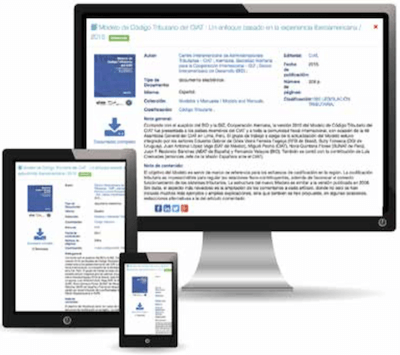Training Program

Training Program
Boost your professional career with specialized, high-quality training.
We offer two international master’s degrees in partnership with prestigious universities:
- Master’s in Public Finance and Tax Administration, focused on the design and management of tax policies.
- Master’s in International Taxation, Foreign Trade, and Customs, focused on global regulations and economic integration scenarios.
What do we offer?
- Advanced training with a practical approach.
- 100% personalized content.
- Expert tutors and tax administration officials from across the region.
- International networking and access to exclusive resources.
Tailor-Made Courses
We design training programs tailored to the specific needs of Tax Administrations (TAs). Each course is developed based on institutional objectives, participant profiles, and the challenges of the tax context. Our offer combines regulatory updates, practical tools, and innovative methodologies to strengthen competencies and optimize tax management.
Virtual Courses – EduCIAT Platform
Through EduCIAT, we offer virtual courses that provide flexibility, interactive resources, and specialized support. This modality allows participants to access updated content, practical cases, and discussion forums, ensuring a dynamic learning experience accessible from anywhere. Our virtual courses are designed to complement, not replace, the training processes of Tax Administrations (TAs).
Specialized Courses
We design specialized courses that address complex topics requiring a higher level of knowledge and experience, ensuring deep and applied training. Each session responds to specific demands requested by our members and strategic partners, providing practical solutions to the challenges of the tax field.
Discover our virtual courses

Virtual Library
CIAT places at your disposal the Jorge Eduardo Corradine Online Library where a significant collection of documents and publications may be consulted.
Our team
Alejandro Juarez
ajuarez@ciat.org
Maureen Perez A.
mperez@ciat.org
Cesar Trejos C.
ctrejos@ciat.org
Monica Donoso
mdonoso@ciat.org
Monica Claroz
mclaroz@ciat.org
-
Revenue Report CIAT (RRC). First Semester – year 2025
-
Fernando Raúl Martín
-
CIAT and SEFAZ-AL Strengthen Tax Modernization in Brazil with the Advancement of the SATI Project
-
Artificial Intelligence and Taxpayers’ Rights: regulatory consolidation in the Province of Córdoba
-
CIAT visited SIN in Bolivia
-
Reimagining Tax Administration in the Digital Age
-
Natalia Quiñones Cruz
-
New CIAT Publication on Anti-Avoidance Rules in Latin America
-
Esteban J. Alonso
-
Rosa Elena Orna Salazar
